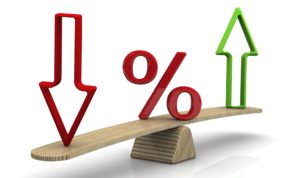
President of Ukraine Volodymyr Zelensky has congratulated British Prime Minister Boris Johnson on his election victory.
“I sincerely congratulate Boris Johnson on his victory! In this key period for Great Britain, we want the well-being of our British friends and allies. I’m ready to work together for the benefit of our peoples, as well as peace and prosperity in Europe,” Zelensky wrote on his Telegram channel.
Earlier, the results of polls conducted at the exits from polling stations showed that the ruling Conservative Party of Great Britain was able to secure a majority in the House of Commons following the election results.

The European Union has launched a project entitled “Support to Ukraine for Developing a Modern Public Health System” on December 12, the Public Health Center (PHC) reported. The project will help the government to implement public health reform in line with its obligations under the EU-Ukraine Association Agreement, reads the statement on the website of the PHC.
The experts will consult the Health Ministry of Ukraine, the PHC and the regional public health centers, help to draw up laws and regulations, analyze and implement the EU practices.
According to the statement, the project is aimed at streamlining the public health system in Ukraine with the EU practices, creating a sustainable epidemiology surveillance system to control contagious and non-contagious diseases and introducing the International Health Regulations to prevent, protect against, control and provide a public health response to the international spread of disease.
In addition, the project will provide support for reform of the blood donation service in Ukraine via the development of a modern blood safety system in line with the EU standards. The project will also help to improve the quality control system, create donor registers and unified standards for blood transfusion, promote voluntary blood donation and establish an independent competent agency in the sphere of blood safety.
The EU project “Support to Ukraine for Developing a Modern Public Health System” will be implemented from 2019 until 2022 by the GFA Consulting Group GmbH (GFA) in consortium with the National Institute for Health and Welfare, Finland (THL). The budget of the project is EUR 3 million.
National bank of Ukraine’s official rates as of 13/12/19

Source: National Bank of Ukraine

JSC Ukrzaliznytsia (Kyiv) and Polish Railways will launch a new international transfer route Lviv-Berlin (Germany) from December 15, 2019, the press service of Ukrzaliznytsia has reported with reference to head of the company Yevhen Kravtsov.
“Together with our Polish colleagues, we agreed to organize the so called Lviv-Berlin interchange route. Therefore, Ukrainians will be able to travel to Germany with only one convenient transfer, and we expect tourists from this country. This trip will take a little more than 18 hours,” Kravtsov said.
According to Ukrzaliznytsia, passengers traveling to Germany will be able to use train No. 89/90 Lviv-Przemysl and at the terminal station make a convenient transfer to train No. EC/EN 456/457 Przemysl-Berlin.
So, train No. 89 will leave Lviv at 16:20 and arrive in Przemysl at 18:19, then transfer to train No. EC/EN 456 Przemysl-Berlin, which leaves Przemysl at 19:57 and arrives in Berlin at 09:48.
On the way back, train No. EC/EN 457 Berlin-Przemysl leaves Berlin at 18:43 and arrives in Przemysl at 08:38. After that transfer to train No. 90 Przemysl-Lviv with departure from Przemysl at 10:18, arrival in Lviv at 13:45.
Train No. EC/EN 456/457 Przemysl-Berlin will also stop in Krakow, Katowice, Opole, Wroclaw (all Poland) and Frankfurt an der Oder (Germany).
In the ten months of 2019, Ukrzaliznytsia transported almost 479,000 passengers to European countries, which is 55,600 more than in the corresponding period last year.

The National Bank of Ukraine (NBU) has decided from December 13, 2019 to cut its refinancing rate to the level, at which it was two years ago – 13.5% per annum from 15.5% per annum, which was set from October 25, 2019. “The NBU speeds up the monetary policy easing, as the rapid appreciation of the hryvnia makes inflationary pressures decline faster than expected,” the central bank said on Thursday.
The Board of the National Bank said that the stronger hryvnia made inflation decline towards the 5% target faster than envisaged in the latest macroeconomic forecast.
The NBU also said that it will revise the inflation forecast taking into account the situation in the foreign exchange market and will publish the updated macroeconomic forecast, including the future inflation path, at the end of January.
The regulator recalled that according to the October forecast, it plans to reduce the refinancing rate to 8%. However, as part of the next review of the macroeconomic forecast, in January it will publish an updated forecast of the pace of the refinancing rate. The forecast will take into account the impact of consumer demand and FX market conditions on future inflation.
In addition, the NBU will continue to monitor what progress is achieved in implementing key domestic reforms. These reforms are those that are envisaged in the memorandum of understanding signed by the Ukrainian government and the NBU, and the judicial reform required to establish the rule of law in Ukraine.
Commenting on the current situation, the regulator said that in November 2019, consumer inflation decreased sharply, reaching 5.1% year-over-year, which was below the NBU’s latest forecast. “In such a way, inflation reached the medium-term target of 5%, set by the NBU in 2015,” the central bank said.
The steady disinflation has been driven by a gradual easing of underlying pressures on prices, reflected in a slowdown of core inflation, and by lower energy prices. Inflation slowed markedly due to both the strengthening of the hryvnia and an improvement in inflation expectations. The above factors neutralized the pressure on prices from robust consumer demand and worse harvest of some vegetables.
The NBU said that the hryvnia strengthened due to several reasons. In October-November, the excess supply of foreign currency was mainly driven by proceeds from Ukrainian exports, in particular thanks to a record harvest of grain and oil crops, and selling foreign currency coming from borrowings of state-owned companies. Foreigners continued to invest in hryvnia government bonds, but it did not have major influence on the foreign exchange market, unlike in the past months. At the same time, the NBU actively purchased excess foreign currency to replenish international reserves. Net foreign exchange interventions have totaled over $5.5 billion since the start of 2019.
“Reaching the staff-level agreement on the new cooperation program with the International Monetary Fund is an important milestone in the progress of structural reforms in Ukraine as well as in maintaining macrofinancial stability and steady economic growth,” the NBU said.
The central bank paid attention other risks that the NBU took into consideration when making its previous monetary policy decision remain in place. In particular, the risk of rising threats to macrofinancial stability persists because of court rulings and pressure on the NBU. If materialized, these risks could worsen exchange rate and inflation expectations, and make it harder for Ukraine to access the international capital markets at a time when debt repayments are peaking.
According to the press service of the NBU, the following external risks remain relevant a complete halt of the transit of Russian gas through Ukraine, intensified trade tensions and more turbulent global financial markets and an escalation of the military conflict and new trade restrictions introduced by Russia.
As reported, the NBU began a cycle of easing monetary policy rates on April 26 this year, lowering the refinancing rate to 17.5% per annum from the level of 18% per annum, at which the central bank kept it from the beginning of September 2018. Then, in the middle of July and early September of the current year, the National Bank lowered the refinancing rate by 0.5 p.p. each time, and at the end of October lowered it by 1 p.p.
A summary of the discussion by Monetary Policy Committee members that preceded this decision will be published on December 23, 2019. The next meeting of the NBU Board on monetary policy issues will be held on January 30, 2020 as scheduled.